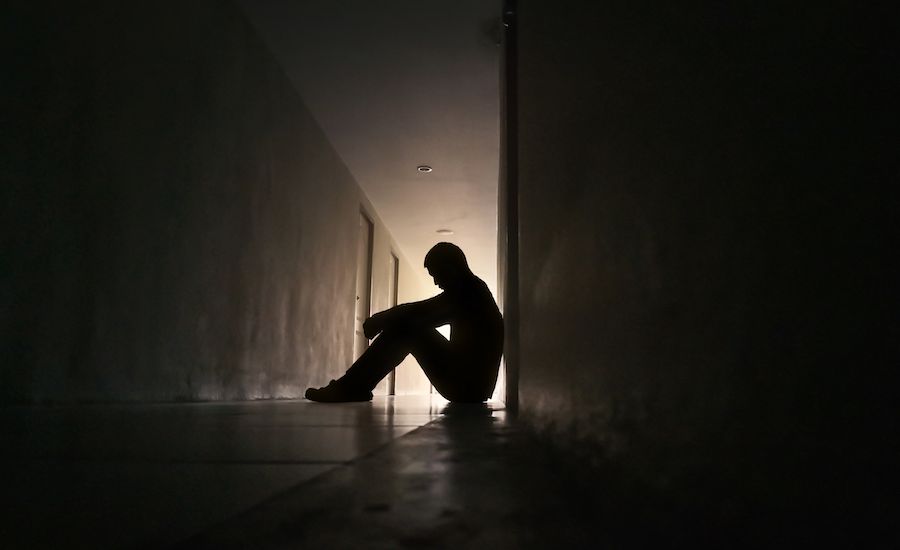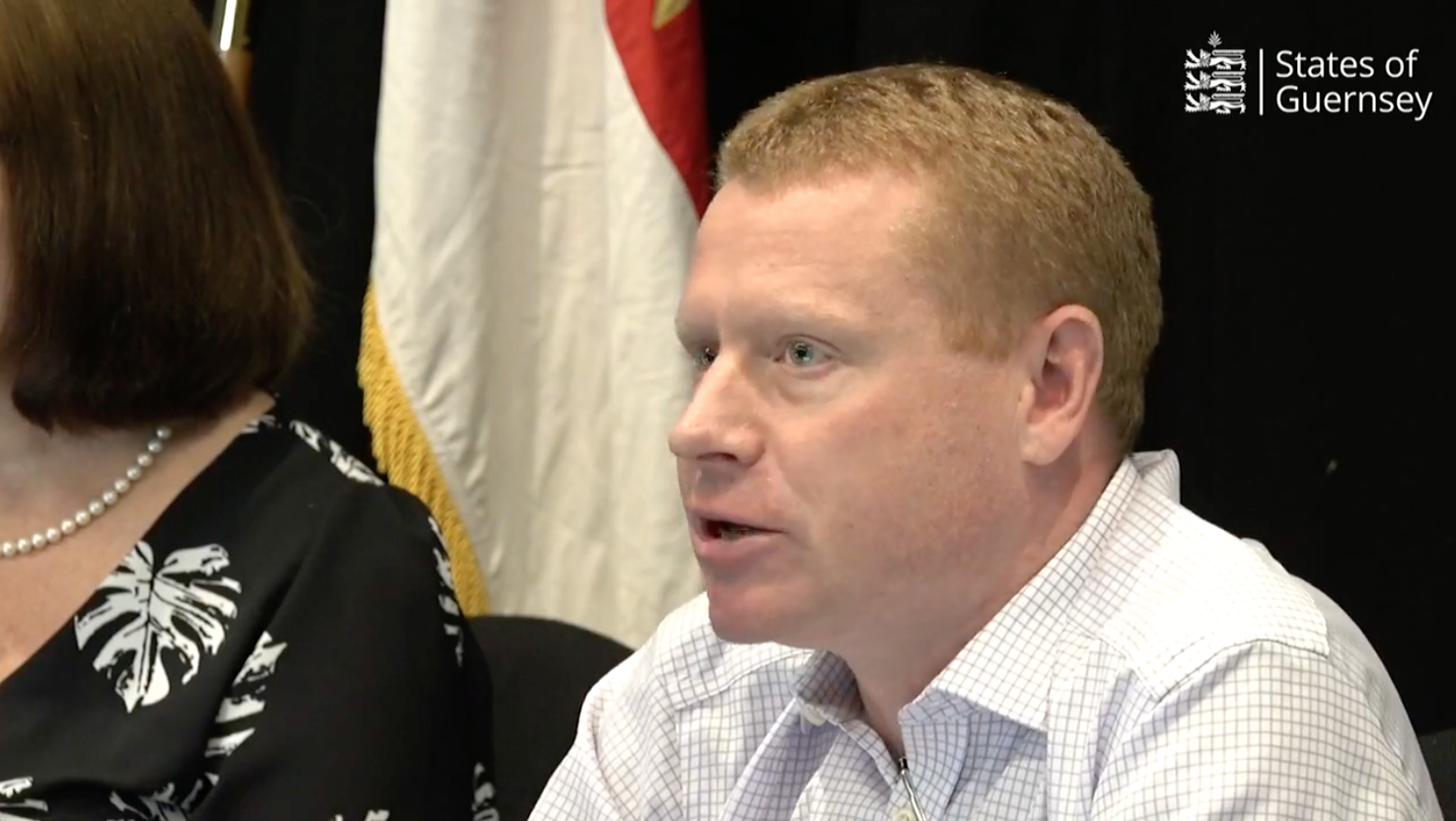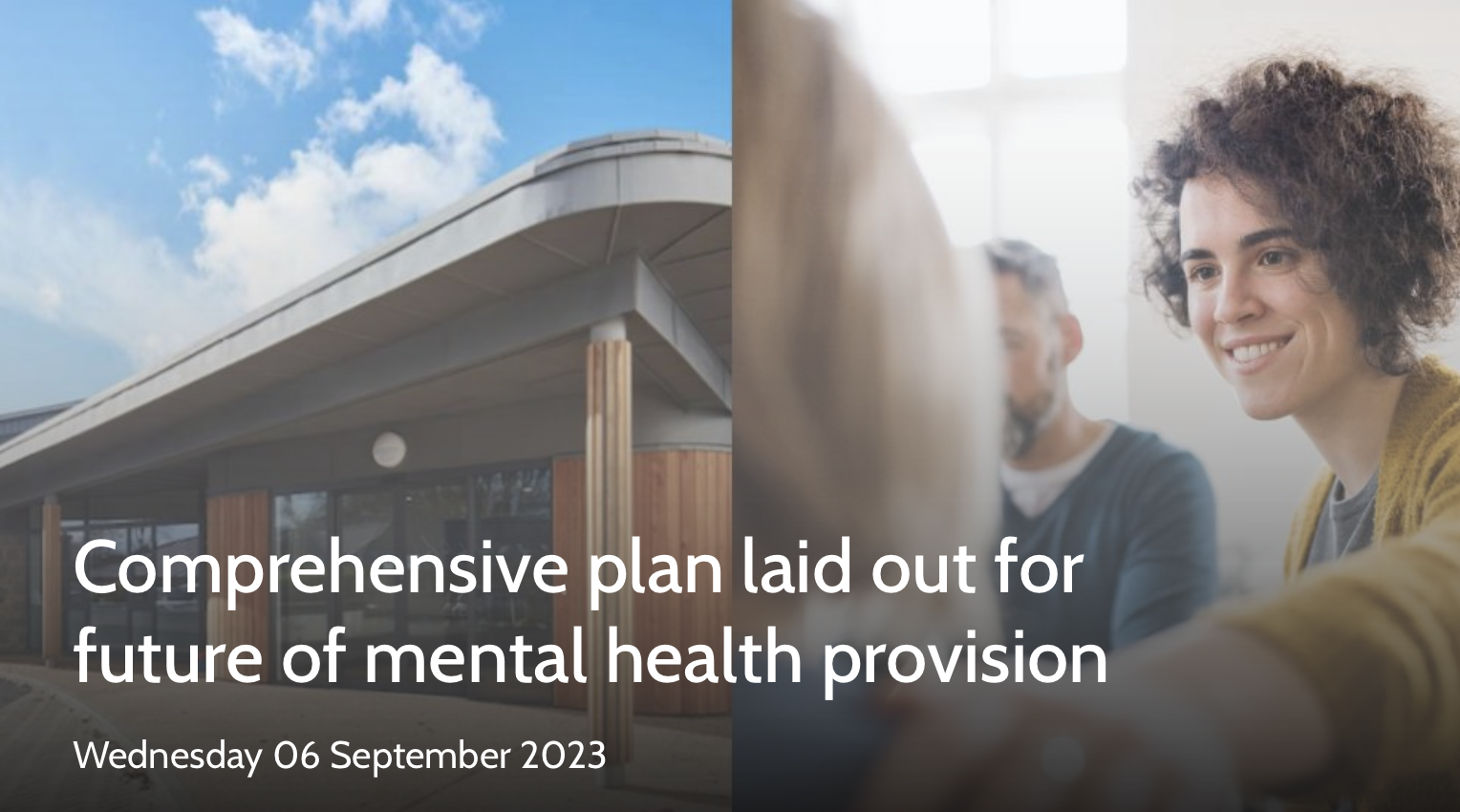


The Bailiwick's new mental health strategy will be underpinned by the lived experience of service users helping to improve wellbeing for everyone which will in turn limit the development of serious psychiatric illness for those most at risk.
Published this week - ahead of World Suicide Prevention Day on Sunday - the strategy has been drafted following feedback accrued through reviews of local services in 2018 and 2022.
The Clinical Director for Mental Health and Adult Disability across the Bailiwick is Dr Dominic Bishop.
"We want to help, we want to work with people to improve their lives because we know how difficult it can be," he said.

Pictured: Dr Dominic Bishop is the Clinical Director for Mental Health and Adult Disability for the Bailiwick.
While Dr Bishop acknowledges there is always room for improvement he believes local mental health services are very good. However, he wants to encourage better levels of engagement at all levels. Early intervention is key to improving wellbeing and mental health he said with one area of concern being a lack of understanding over what services are available and who can access them.
"One of the things as a steering group we have to look at and think about very seriously is 'is this a [service] gap', is it being filled and the person just wasn't aware of it? And is there a way that we can put it together more cohesively and collaboratively to close some of these gaps or to signpost so people don't think there are gaps, or is there a gap but it's such a tiny gap that will affect such a small proportion that actually as an island, it's not realistic to fill it. Is there another way in which we can creatively fill those deficiencies?"
The new mental health strategy will try to answer some of those questions by bringing together experts from mental health and public health services, charities and people who have experienced poor mental health themselves.
The new strategy focuses on 'four pillars' for success. Those four pillars aim to bring together local data and evidence to inform local services, information access and signposting, improving those available services, and then acting on feedback and reviews.

The key performance indicators have been identified by the mental health and well- being steering group - including people with that lived experience - and the strategy's success will be measured through annual reviews over its five-year lifespan. Those annual reviews will then lead into the development plans for the future of the strategy beyond the initial five years.
Dr Nicola Brink said it was clear from the very start that a team approach, with round table discussions, was the way forward.
"I think what has been most rewarding from our perspective has been that this has been a multidisciplinary development of the strategy. So the strategy development has been overseen by the mental health and well-being steering group. That steering group not only has statutory officials, so public health health and social care, spacious mental health services, education, and police, prison services and so on but also importantly has the community and voluntary sector.
"The charitable sector has been absolutely key in developing this strategy," she said.
"Then we also and probably most importantly have people who have lived experience and they again tell the story, they look at our services and can give us that different perspective. So having those experts, my experiences, people with lived experience, has really contributed to developing a strategy which we feel is appropriate for the Bailiwick."

Pictured: Dr Nicola Brink is the Director of Public Health.
As Director of Public Health, Dr Brink is responsible for the oversight of all health and social care provision in the Bailiwick. It became clear during her handling of the covid pandemic that she likes to back up her work with data and she said that will be a common thread through this strategy too.
"The important thing about this strategy is it's a living document. So although it has a five year lifespan, if new evidence becomes available, we will change our recommendations as appropriate. And I think that's important, we don't want a static document. We also want the strategy to be accountable."
With high levels of mental ill health or poor mental wellbeing reported over recent years - increasing steadily since 2019 according to local data - the mental health strategy steering group said it's clear that by encouraging everyone to look after their own mental wellbeing is key to stopping more serious issues developing.
Jo Cottell who works for Guernsey Mind and volunteers for the Samaritans said it is clear to charities like those that wellbeing and mental health are different but are intrinsically linked.
"We've been commenting on the various drafts in our perspective on things because we're seeing different things. What we see day to day basis working at if you like the lower end of mental health, more mental wellbeing rather than clinical mental ill health, we're seeing different things on a day to day basis than Doctor Bishop is for example."

Pictured: The team at Guernsey Mind offer a variety of services to improve mental health and wellbeing.
"If mental well being is looked after in some cases, you can prevent it escalating to the clinical ill health. As a charity that's what we're all about," said Ms Cottell.
"Dr Brink was talking about the pillars and if we talk about building blocks then it's about the bottom of the pyramid where there are more people and more people are affected. If we can do work that keeps people well, then there's less opportunity for them to become really unwell."
Speaking out when something doesn't feel "right" or you are feeling unwell or different is the key factor in maintaining one's own wellbeing and positive mental health agreed everyone involved in the new mental health strategy.
"I know there's often a lot of talk about the States working in silos but I'd like to think that the strategy we brought together means that we can all talk to each other," said Ms Cottell.
Dr Bishop agreed that speaking out is key.

Pictured: If anyone is struggling to talk to someone they know, then the Samaritans offer a free listening service.
"...there's been a huge amount of relatively superficial mental health awareness over the last 5 to 10 years. But mental health awareness and mental health, understanding and knowing where to go when you're struggling, at what level, which direction you should go, I think that's the mismatch that we've got at the moment," said Dr Bishop.
"...the earlier you can intervene, and that's true for mild mental health problems and that's true for the most major mental health problems.
"Even people with psychotic illnesses, whereby the longer someone lasts with an untreated illness, the worse the prognosis is. The earlier you can get in, even if a person is psychotic, hearing voices, delusional, behaviourally disturbed. If you can get to them quickly and you can treat them effectively, the prognosis is far better."
While statistically speaking men are less likely to ask for help if they're experiencing suicidal thoughts, Dr Bishop said men are also less likely to ask for help much earlier when facing difficulties with their wellbeing. He said that has to change for the outcomes to improve.
"It takes an average of 12 months for females (in the UK) to be picked up who are psychotic and an average of 18 months for a man who is psychotic to be picked up. And for the latter it's usually by the criminal justice system. We live in a very small community so it is very hard to hide if you're very mentally unwell so we get in and we treat people earlier, generally but not in every case, it's not perfect.
"I've seen much better effects in terms of people returning to work, in terms of their relationship, even their children, those sorts of things, which is what we really want. We want people to live their best life, on the lowest possible dose of medication so that they're well, but they don't feel medicated."
Comments
Comments on this story express the views of the commentator only, not Bailiwick Publishing. We are unable to guarantee the accuracy of any of those comments.